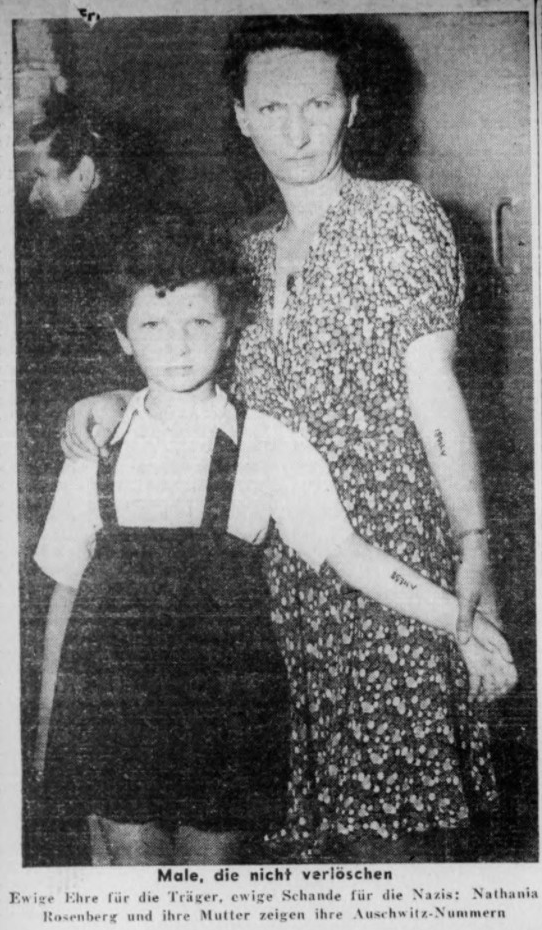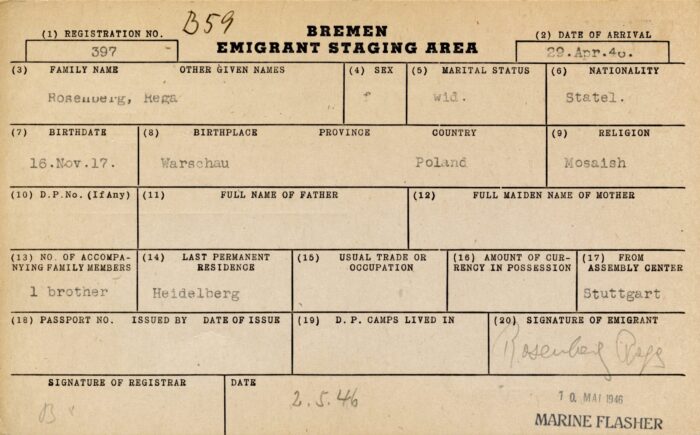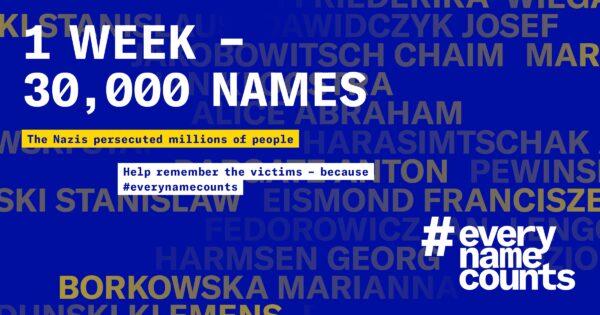New #everynamecounts challenge for Holocaust Remembrance Day

To mark International Holocaust Remembrance Day on January 27, the Arolsen Archives are inviting people to take part in a new #everynamecounts challenge. The aim is for volunteers to help digitize 30,000 documents about survivors of Nazi persecution in the space of one week. The documents concerned come from the Bremen “emigration card file,” which is stored in the Bremen State Archives.
Were there opportunities for people to leave Germany, the country of the perpetrators, after 1945? Which countries did survivors of Nazi persecution and liberated forced laborers go to in order to find refuge? And who were these people? The documents from the “emigration card file” stored in the State Archives of Bremen, most of which were created between 1946 and 1952, provide answers to these questions. They are the focus of this year’s #everynamecounts challenge, which is taking place on and around January 27, the 79th anniversary of the liberation of Auschwitz-Birkenau concentration camp.
The challenge will start at 8:00 am on Monday, January 22, when 30,000 index cards go online on the website.
With the help of thousands of volunteers, we aim to digitize the names and the other most important pieces of information on the cards by 8:00 pm on Sunday, January 28. The information the cards contain concerns survivors of Nazi persecution and deportees who were eagerly waiting to emigrate and start a new life on another continent after the war. The first 800 of them set sail for New York in May 1946 on board the Marine Flasher.
Why does the challenge focus on documents from the emigration card file?
The war was over, the concentration camps and forced labor camps had been liberated, but what happened next? There is a gap in the remembrance of Nazi persecution when it comes to the people the Allies called Displaced Persons, or DPs for short. Hundreds of thousands of deported forced laborers and people who had survived the Holocaust, concentration camps, and ghettos were unable or unwilling to return to their native countries. They lived in so-called DP camps while they waited for an opportunity to emigrate. One of the major emigration routes went through Bremerhaven. People spent the final weeks before their emigration in staging centers in the nearby city of Bremen, where more than 500,000 index cards were filled out as an administrative aid.


Index card for Rega Rosenberg, who emigrated with her daughter Natalia in 1946 on the Marine Flasher’s first voyage from Bremerhaven to the USA. Both were survivors of the Auschwitz-Birkenau concentration camp. The photo shows her on her arrival in New York; it appeared in an article published in the “Aufbau” newspaper on May 24, 1946.
In launching the 2024 challenge, we want to draw attention to the huge difficulties faced by people who took the decision to make a new start in a foreign country. They desperately needed support, assistance, and people who understood their difficult situation. Just like migrants in any other era – including today.
The #everynamecounts challenge will help the world’s largest digital memorial to the victims and survivors of the Nazi era continue to grow. The crowdsourcing initiative makes it easy for people to stand up for respect, diversity, and democracy themselves. That is as important today as it ever was – because the reasons for persecution are not a thing of the past.
Anyone who wants to take part just needs a computer, access to the internet, and a few minutes of spare time – then they can start digitizing the names and information on the index cards.

After processing a document, participants can share the results on social media. We hope lots of people will join in and tag @ArolsenArchives.
The challenge at a glance
- 30,000 documents from the Bremen “emigration card file” will go online at 8 am on Monday, January 22
- Volunteers can take part in the challenge until 8pm on Sunday, January 28
- The data is entered using an easy-to-understand, intuitive tool at https://everynamecounts.arolsen-archives.org/en
- After entering the data, the results can be shared on social media

